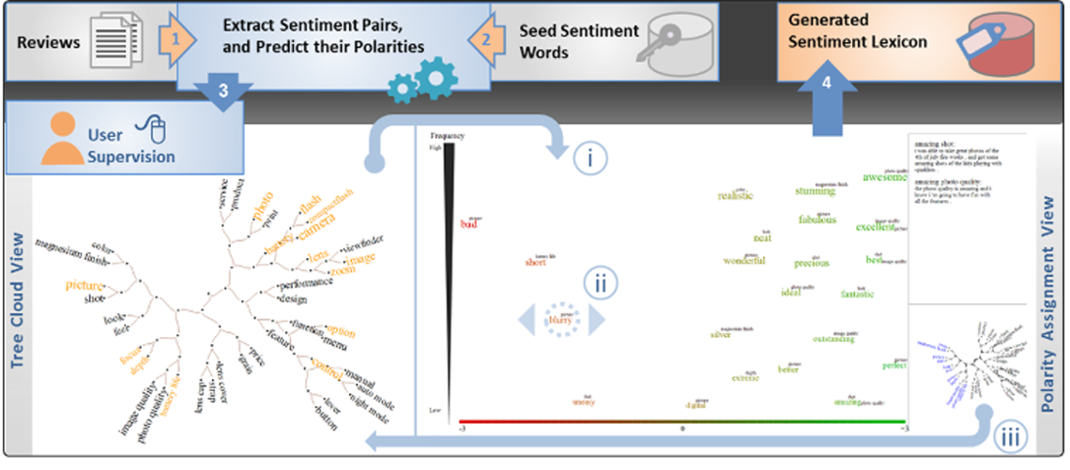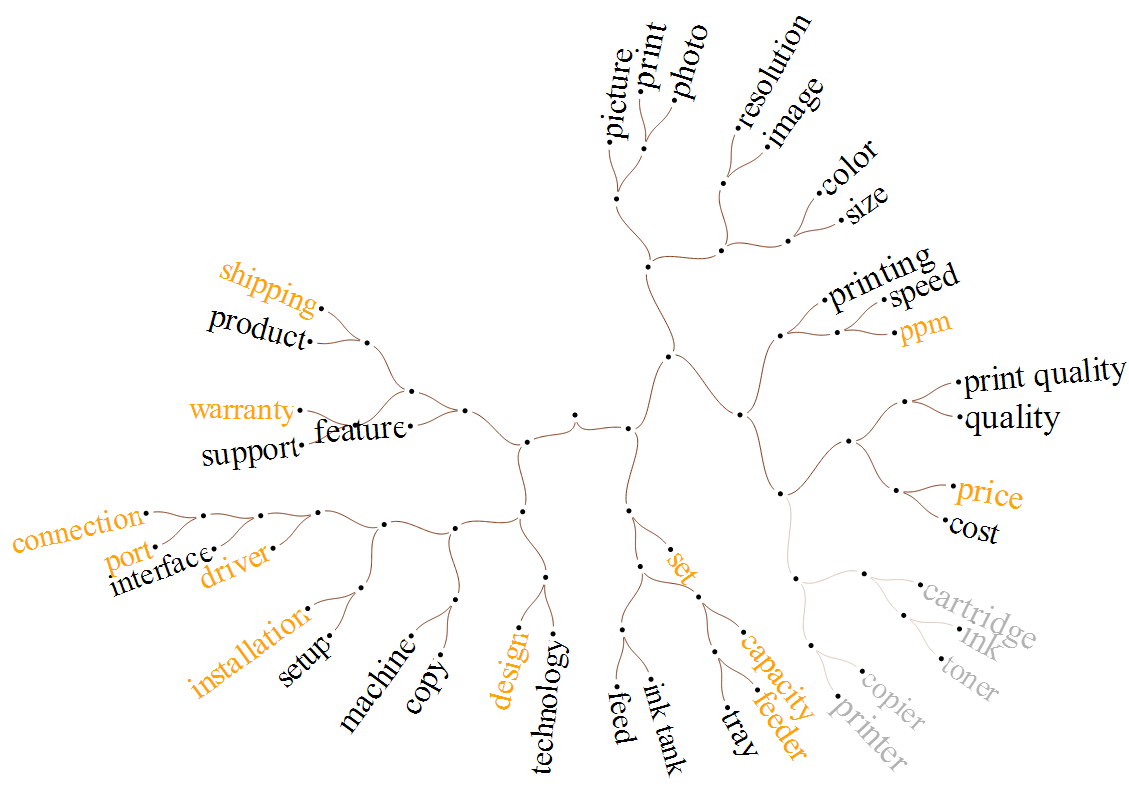Raheleh Makki Niri
Dr. Evangelos E. Milios
Dr. Stephen Brooks
Overview
With the growth of Web opinion data, the need for analyzing people’s attitude toward different topics has been increased. In most existing automatic sentiment analysis methods, utilizing a comprehensive sentiment lexicon is very significant. It is well known that utilizing high quality sentiment lexicons can improve the performance of opinion mining applications. However, since sentiment words have different polarities not only in different domains, but also in different contexts within the same domain, constructing such context-specific sentiment lexicons is not an easy task.
The high costs of manually constructing such lexicons motivate researchers to create automatic methods for finding sentiment words and assigning their polarities. However, existing methods may encounter ambiguous cases with contradictory evidence which are hard to automatically resolve. To address this problem, we aim to engage the user in the process of polarity assignment and improve the quality of the generated lexicon via minimal user effort. The workflow of our proposed approach is illustrated in the figure below.

First, an automatic method is employed to generate the context-specific sentiment lexicon. Then, its results are presented to users through the proposed visual interface. Now, the user can change the predicted polarities by the automatic algorithm whenever she observes a wrong assignment. At the end, we have the context-specific sentiment lexicon after user involvement which has a higher quality compared to the output of the automatic algorithm.
To evaluate the proposed approach we ran a user study. The results show that (1) involving the user in the polarity assignment process improves the quality of the generated lexicon significantly, and (2) participants in the study preferred our visual interface and conveyed that it is easier to use compared to a text-based interface.
publications
Raheleh Makki, Stephen Brooks, Evangelos Milios, Context-Specific Sentiment Lexicon Expansion via Minimal User Interaction., 5th International Conference on Information Visualization Theory and Applications (IVAPP). January 2014; Lisbon, Portugal.

